275 MacLaren Street, Ottawa, ON K2P 0L9
Traditional Food Upskilling as a Pathway to Urban Indigenous Food Sovereignty
Food sovereignty has received a great deal of attention as an intervention to address not only food insecurity, but a larger attempt to regain control over food systems and health. The North End of Winnipeg, one of the most economically challenging locations in Winnipeg, faces significant food insecurity. Underneath the limited grocery stores and the limited access to cultural food lies an important strength that challenges notions of food insecurity. Indigenous people in Winnipeg have been working towards “Indigenous Food Sovereignty” (IFS) with regards to cultural food specifically. Indigenous people in urban centres face a wide range of food insecurity issues from limited quantities of healthy and affordable food, to limited access to cultural food. Food security, while a separate concept from food sovereignty, is certainly aligned, however in an Indigenous context, is mostly discussed in the context of remote, rural communities. Food insecurity certainly exists in urban centres for Indigenous communities. In 2013, we conducted preliminary research which found that Indigenous people in the city experienced food insecurity, but also were working towards larger goals of what is being called “Indigenous Food Sovereignty” with regards to cultural food specifically (Cidro & Martens, 2014).